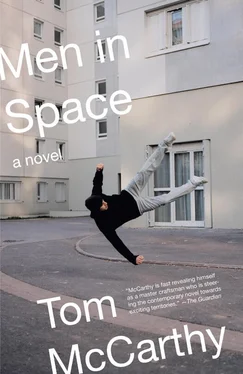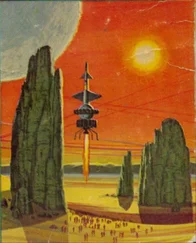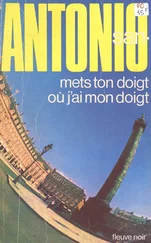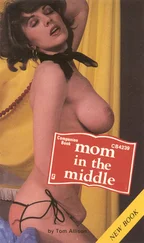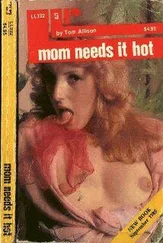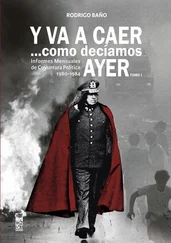“Presumably there’ll be another one following him. It’s not like that that we’re going to … Look: I’ve told the others to try and meet at this place … You said you knew that street, V.P. Čkalova?”
“That’s where I went to that party where I offered Maňásek the commission. You know, with the bird painting we were talking about when …”
“Fucking Maňásek. I’d like to … Actually, we should be praising him to high heaven, all of us. If he hadn’t turned us over like he did, we’d be — well, you would, I mean — you know …”
“Oh, I know all right.” The irony of it: that Ivan Maňásek made two, not one, copies and handed both these back to Anton, passing one off as the original — this is what saved them, whisked the rug away from under the police’s feet. No stolen artwork, no crime, no case. As Branka explained to him several times, it’s not a felony to possess a copy, or two copies, or a hundred copies for that matter, of a painting. The murder-charge threat was pure front, as Anton would have seen back in the station if he hadn’t been so scared. But then, the double irony: that the police now had nothing to wave at the Bulgarian authorities meant that he had nothing to bargain with — which meant that the whole system he’d miraculously discovered crumbled into nothing. To have gone that far, right to the edge of himself and beyond, only to discover it had all been academic, meaningless: it’s as though a giant train, some nuclear behemoth a thousand times bigger and louder and faster than this cheerful little local, had roared across his life, and he’d been caught right in its path, felt himself churned up by the wheels and pummelled by the spokes and then, somehow, fantastically, cast up into the driver’s chair unharmed and found he could control the thing, take it where he wanted — or so it seemed to him until the roaring and the hissing died away and he realized that he hadn’t been caught up in it at all: it had passed by him, frightened him but not touched him, and then dwindled away to a dot perched on some distant vanishing point, leaving him there in the same old landscape that he couldn’t quite believe was so unchanged after all that …
The bell stops ringing as the short, fat woman cranks the handle round the other way to bring the barriers up vertical again. More than two years ago, soon after Anton, Helena and the children had arrived in Prague, they rode the funicular to Strahov. Kristof asked him as the car creaked up the hillside how they made it do that; Anton told him there was a giant at the top who winched the cable up there with his own two hands — then found himself, for the rest of the afternoon, as they climbed Eiffel’s downscaled tower and ran around the hall of mirrors underneath, elaborating on this for him, inventing a mystical room full of cogs and pulleys, giving his colossus a beard and sandals, a nod in the direction of the Greek myths Helena would lull both kids to sleep with. The memory of the hall of mirrors chills him now: to think of them both splitting, slinking away, disappearing as he and Helena chased after them, twenty of each, squashed down fat, drawn out tall and thin, turned into lines of hip-joined paper figures, dangled upside down, each of them spectral and unreal — a warning, if they’d only listened, of what was waiting for them out beyond their little world of giants and towers and mirrors …
“You go up towards the overground station. See if you can lose yours in the market. If you turn a corner, make a sudden run or something like that … Only come into the restaurant if you’re sure you’ve shaken him off. If not, we’ll just meet in one hour back here and talk as we walk. OK?” Ilievski’s still murmuring, his eyes fixed straight ahead.
“Fine.”
Ilievski strides off, heading past the abandoned cello towards Bubenečská. Anton turns left and walks up Dejvická, following this road past the market towards Dejvická Station. There are plenty of people pressing round the stalls selling vegetables and alcohol, but the street’s long and straight. He’ll never lose them both here: nowhere to run to. He can’t cut behind the stalls because these back straight onto the railway line. When he came up here for that party they’d been building these stalls: fresh-cut, light-coloured planks were standing on a bed of sawdust that was carpeting the pavement like the first light coat of snow that came a week or so later. A spirit level had been left out beside these. Anton remembers stopping to look at it fondly. It was playing with one of those, age fourteen, that had first made him want to be an engineer: watching this bubble-fish of air swimming through green liquid as it showed you the sea’s flatness even though the nearest sea was three hundred kilometres away, and realizing that if you put two lines around it you could build whole cities … He thinks of the saint in the picture, the lines by his head: the straight ones, then that elongated bubble that extended backwards and off-centre from it as he rose up through the greenish, oxidizing gold … He stops in front of a stall selling pyramids of toilet paper and, looking back, sees that one of his tails, the weird one, has either fallen off or been diverted onto Ilievski. One to go.
Anton arrives at Dejvická Station. The main room of the dust-coloured terminal building is given over to a restaurant. He wanders in and sits down at a table beneath an enormous greasy mirror that lines an entire wall. His remaining tail sits at a table on the room’s far side, next to French windows that border the platform. The restaurant’s full, heavy with talk and smoke. There are already two people at Anton’s table: one is eating guláš , mopping the brown gravy round the dish with pronged slices of knedlíky ; the other’s gurgling on mouthfuls of soup. The people he saw gliding by on the brightly coloured train would have been in here fifteen, even ten minutes ago, finishing their lunch or drinking a beer or coffee before climbing aboard. The waiter’s seen him; he signals with his eyes that he’ll be with him in a second as he passes with a tray of dirty glasses. He’s a short man with a dark complexion — not as dark as Gypsies’ skin, but somehow greyer than most white people. It reminds Anton of Bulgarians down in the south, around the Turkish border. He’ll order a Turkish coffee and then pretend to go to the toilet, try to make a dash. The waiter arrives and smiles warmly at him.
“What will you have, my friend?”
My friend? Unusual for a waiter. Maybe because he’s slightly dark-complexioned too. He asks for his coffee.
“Is that all? We have guláš and svíčková and a special: pigeon stew.”
“Pigeon?”
“It’s delicious.” The waiter places his braced thumb and fingers to his lips. They must be easy to catch in this weather, huddled under low eaves shivering, almost paralysed by cold. But you can’t eat those: it’d be like eating rats. Where do you get clean ones from? Are there such things? Wouldn’t that make them doves, like in the painting? Helena didn’t think they were, but he did. The waiter’s still smiling.
“I don’t think …”
“You just try it. I promise you won’t regret it. I’ll bring you a pigeon stew. OK?”
“Well, OK.”
The waiter winks at Anton, then turns and walks over to his tail’s table, to take his order. There’s a sign for the toilets above a small door to the left of the windows. Anton rises from his seat and walks through this door. A corridor behind it leads to another door which lets a blast of cold air in at him when he pulls it back — because, as he soon realizes, it leads to an outdoor compound. The restaurant’s toilets are the station’s toilets. Anton follows the outside of the building round to the left and finds it leads to the back of the market stalls. There’s a gap between two of them: if he just turns sideways, shuffling his feet until … He’s through, emerging back onto the pavement at Dejvická to strange looks from the stallholder, the toilet-paper one again: probably supplies Dejvická Station, it occurs to Anton as he breaks into a run …
Читать дальше
